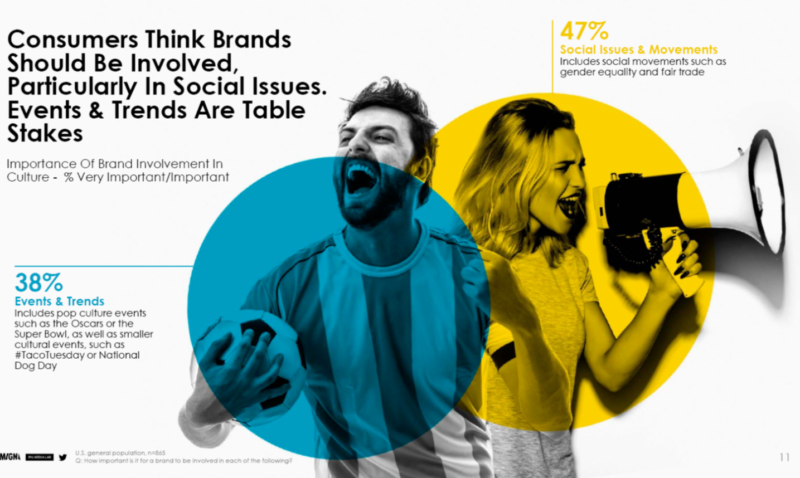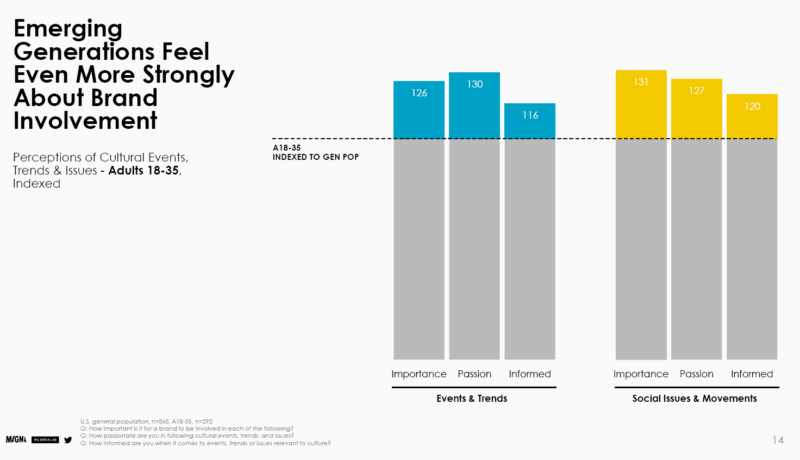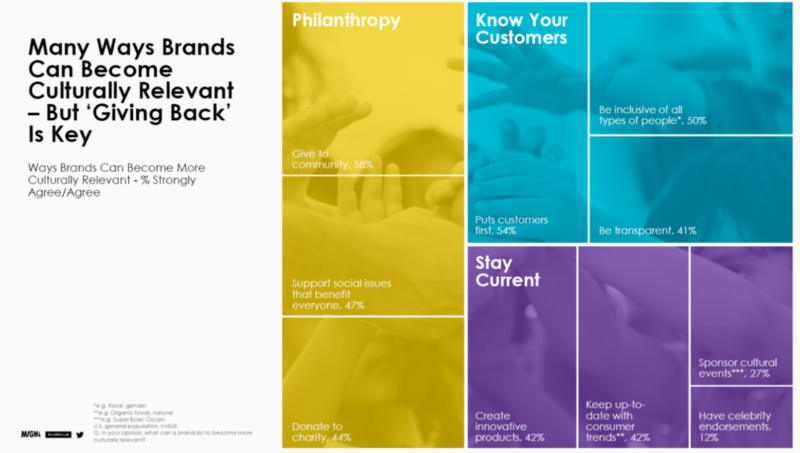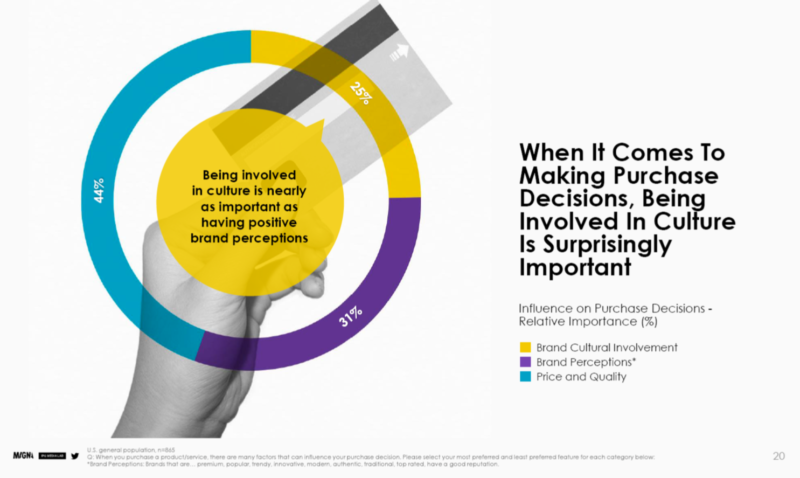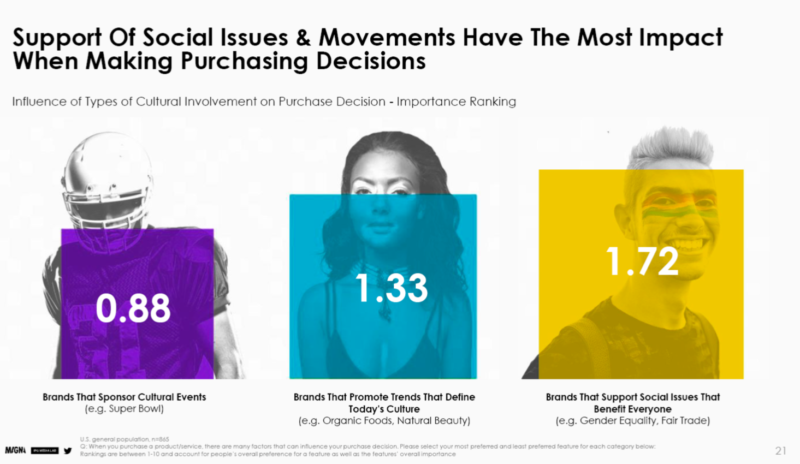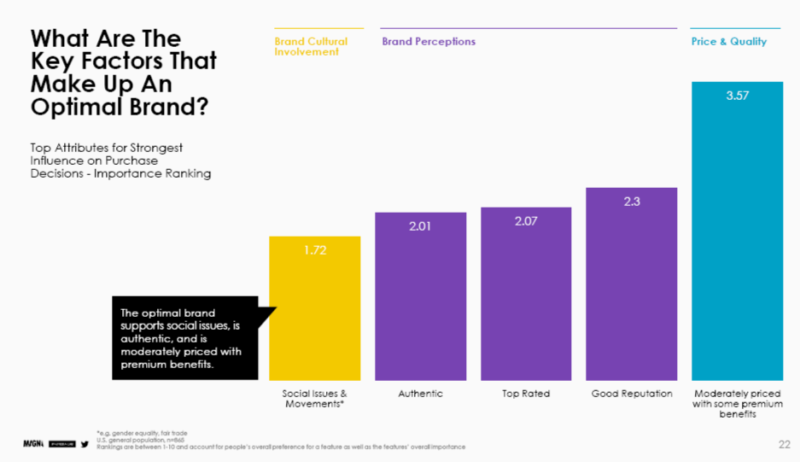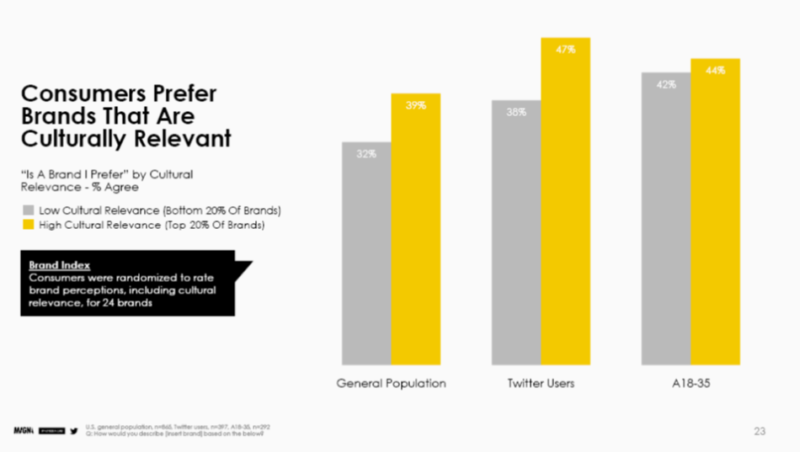How to Make Your Brand Culturally Relevant
By: Elaine Fogel

Brands are becoming more culturally relevant today. Even small-medium businesses have joined the corporate giants in this endeavor.
What does “culturally relevant” mean?
In a new study report from Magna and IPG Media Lab, “Brands that are culturally relevant are brands that align well with cultural events, promote trends that define today’s culture, and support social issues that benefit everyone.”
This takes cause marketing a step further, expanding beyond philanthropy to include social issues, events, and trends. It’s no longer acceptable taking a benign approach to what’s happening around your business/organization. It’s more important than ever to your customers that it takes a stand.
Perhaps, this is the result of divisive political camps. Or, it may be that younger buyers and decision makers are more socially and culturally aware. Regardless, study results give us some guidance on embracing cultural relevancy.
Almost half of consumers in this study believe that brands should be involved in social issues:
It’s interesting to note that emerging generations are driving this demand:
Philanthropy is still a powerful way to become more culturally relevant:
What’s the brand impact for cultural relevancy?
Cultural relevancy is nearly as important as having positive brand perceptions.
Note that that highest rating is for brands that support social issues “that benefit everyone.” However, the study does not define what this category includes.
Are gender equality and fair trade important to everyone?
Let’s look at how cultural relevancy contributes to an optimal brand:
It is apparent that younger generations support brands that are culturally relevant, but not far behind is the general population. This demonstrates that it can appeal to all ages.
So, how can your organization put culture into action?
According to the study:
- Today, consumers expect brand involvement with culture, particularly when it comes to social issues. In order to stay relevant and keep pace with competitors, brands need to keep culture in mind.
- While there are many ways for brands to become involved, one size does not fit all. Brands should be thoughtful in their approach to ensure authenticity and appropriate brand alignment.
- Culturally focused advertising performs differently based on environment and audience. Brands must tailor cultural ads to the right environment to ensure intended impact.
As noted above, “one size does not fit all.” It can be risky for businesses/organizations to take a stand on divisive issues that can send some customers packing.
Before undertaking any changes, it’s crucial to know your internal (employees) and external customers. Understand what makes them tick and what moves them. If you have a mixed bag of customers, it may be wise to choose issues that resonate with most of them.
Lastly, be genuine about your cultural relevancy, otherwise people will see right through your motives.

